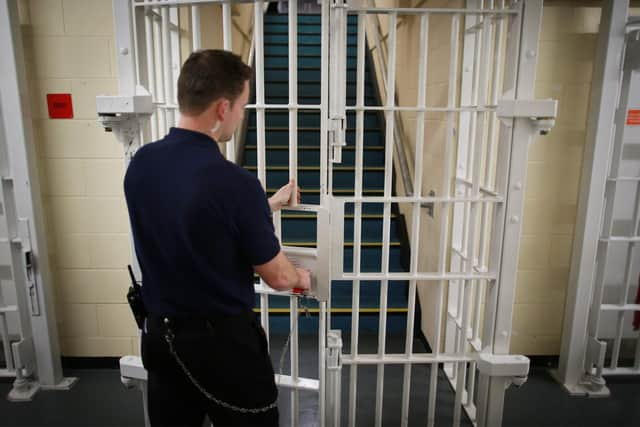Charity has right approach to reintegrating sex offenders into society - Dr Alan Billings
The charity, which was largely funded by the Ministry of Justice, worked with volunteers who acted as mentors to the offenders. The full name of the charity is Circles of Support and Accountability because it aims to offer help but also to ensure that the offender is held to account.
It is called Circles because a small group of volunteer mentors, plus the offender, form a circle of support and accountability. The group meets together regularly to talk issues through and one of the volunteers offers individual support to the offender, who is called the core member. The volunteer will meet the core member, probably weekly, to have a chat, go to a cafe, take a walk, and generally be friendly and supportive. They will continue this relationship for a year or so.
Advertisement
Hide AdAdvertisement
Hide AdThe first days and months after a long sentence are a real struggle for anyone leaving prison, but these offenders will have restrictions placed on them which will make it even harder to resume normal relationships. They are among the hardest of ex-offenders to bring back into society – for obvious reasons.


It may be a condition of their release, for instance, that they are never alone with a woman. It will not be easy for them to speak to those they meet about their past or the reasons why they were in prison. They may have been rejected by their family and previous friends. There may be little sympathy for them or hostility towards them in their community. Some have been known to be attacked.
Part of the accountability role is exploring all of this with the offender. The charity is not trying to minimise the gravity of the offence or do anything that leads the offender to deny his past. The volunteers are trained to help the men acknowledge the past and the sexual impulses that they may still have and to manage their behaviour. If there is to be change, there has to be real self awareness, an understanding of what they are really like with all their flaws and failings. The offenders themselves often talk about how hard their journey has now become. The volunteers come from all sections of society, though when I was involved quite a few were students who simply wanted to do something worthwhile outside of their studies and personal life. They do not necessarily have or need any particular expertise – other than the desire to make a difference and a willingness to cope with disappointment if things do not go entirely smoothly.
The ultimate aim of the charity’s work is to see behavioural change and as a result have fewer victims.
Advertisement
Hide AdAdvertisement
Hide AdSex offenders do serve terms of imprisonment – but then come out. What should happen next? The worst of all worlds would clearly be to leave them with minimal support with the risk that they fall back into old ways.
These offenders need help if they are to reintegrate into their community in any meaningful way. But that must be supported with accountability. Circles has it exactly right.
A shortened version of the Police and Crime Commissioner for South Yorkshire’s latest blog post.